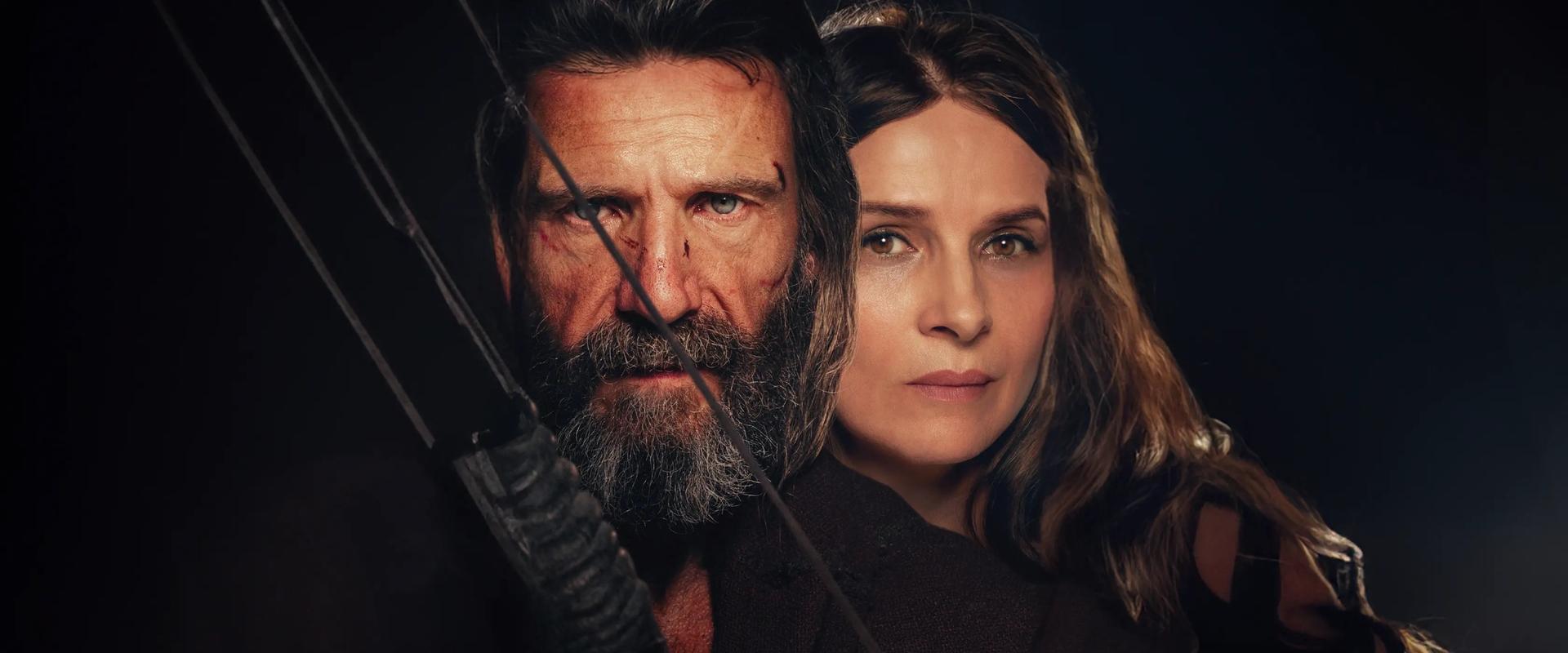Is that a penis? No, really—is that Ralph Fiennes’s penis? I suppose we have to start there, because in Uberto Pasolini’s sepulchral take on the Odyssey, we’re given not just emotional bareness but the full-frontal variety—Ralph, exposed to the elements and the audience, and you do a little double-take in your seat. It’s the sort of unblushing exposure that might’ve stirred old Homer to put away his lyre and blink into the firelight. “They show you everything these days,” you can hear the gallery whisper—a groin-level “welcome home” that’s somehow more shocking than gods or monsters.
But then, The Return is all about baring people—body, soul, their more disenchanted innards—usually at a meditative, near-geological pace. Pasolini imagines Ithaca as a sort of windswept mausoleum of regret, where even the olive trees look like they’ve been through therapy, and myth becomes anti-spectacle. Ralph Fiennes, with his blue-bottle stare and battle-bent posture, makes Odysseus less the conquering hero and more a case study in battle fatigue. The greatness, if there is any, is that he doesn’t ham it up: you feel the weight of every year, every missed birthday, in the lines of his face (and, yes, in the drop of his robe). Fiennes acts with such stripping honesty you sometimes want to help him cover up—whether from vulnerability or sheer British exposure, take your pick.
Enter Juliette Binoche, who, as Penelope, floats through the house in a haze of unloved dignity. Binoche can break your heart with a glance, and she does, over and over, turning wistfulness into something nearly operatic. But there’s also a stagnancy here—her tragedy floats, lovely and smooth, but not always connecting with Odysseus’s. The great reunion plays more like two people on different planets, sending smoke signals across the emotional void, and you wish Pasolini had let them look each other (and us) in the eyes more often than the furniture.
And the visuals—oh, Pasolini loves his textures. The camera can’t stop caressing Ithaca’s battered hillsides, turning even a ruined well into a religious icon. There’s a painter’s anguish in every melancholy dolly shot, the kind of bleak beauty that wins awards but drains the blood out of the epic. The battles have been called off, the gods written out, and all we get is haunted landscape and the ache of absence.
You hear a lot about “slow-burn” storytelling, but this one is such a languorous crawl you’d forgive the ancients for inventing fast-forward. People sigh, stare, shuffle. At times you wonder if Fiennes is about to wither into the scenery, leaving nothing but a faint outline and (yes) blurred frontal evidence. Somewhere between the funereal pacing and the housebound drama, even Telemachus seems to sleepwalk in place, underwritten and underbaked.
The real poverty here is in what Pasolini’s script omits. No meddling gods, no trials, no grand sense of fate. The result isn’t minimalist—it's reductionist, Homer with half the poetry siphoned out. The emptiness feels like a stylistic bet that didn’t quite pay off; when you adapt a myth and squeeze out the mythic, what’s left is just melancholy domesticity, however prettily presented.
And yet, there are moments where the film stirs to life—a sigh, a bitter memory, a question of whether the home you return to can ever forgive your absence. The themes—grief, identity, the soggy aftermath of war—buzz quietly beneath the torpor. The ache is real, even if the storytelling is so careful, so recessive, that only the bravest can care all the way through.
So, what are we left with? A gorgeous, mournful, emotionally exposed drama that delivers full access—sometimes literally—to its hero, but starves the audience of the mythic pleasures that make the Odyssey endure. Binoche aches, Fiennes broods, Ithaca glows, everyone keeps their distance, and the only time you’re startled out of your reverie is when the camera lingers just a second too long and there’s Ralph’s penis, as vulnerable and human as the rest of him.
You have to laugh: after two hours of slow-motion tragedy, what sticks? The ache of myth, the chill of modernity, and, yes, a flash of Fiennes. Homer, at least, would appreciate the candor.


